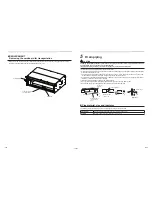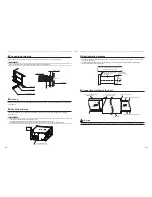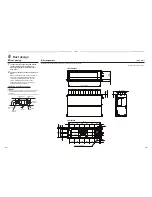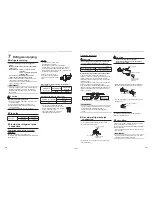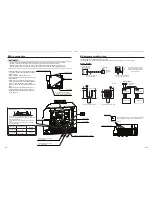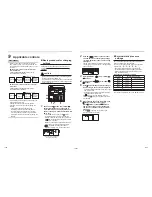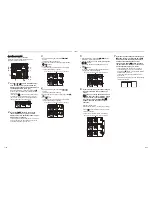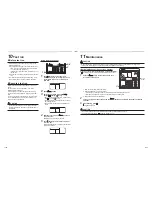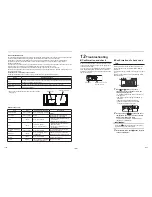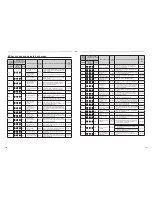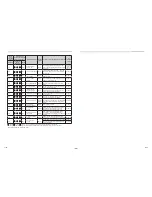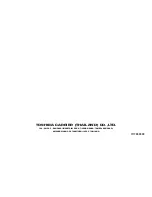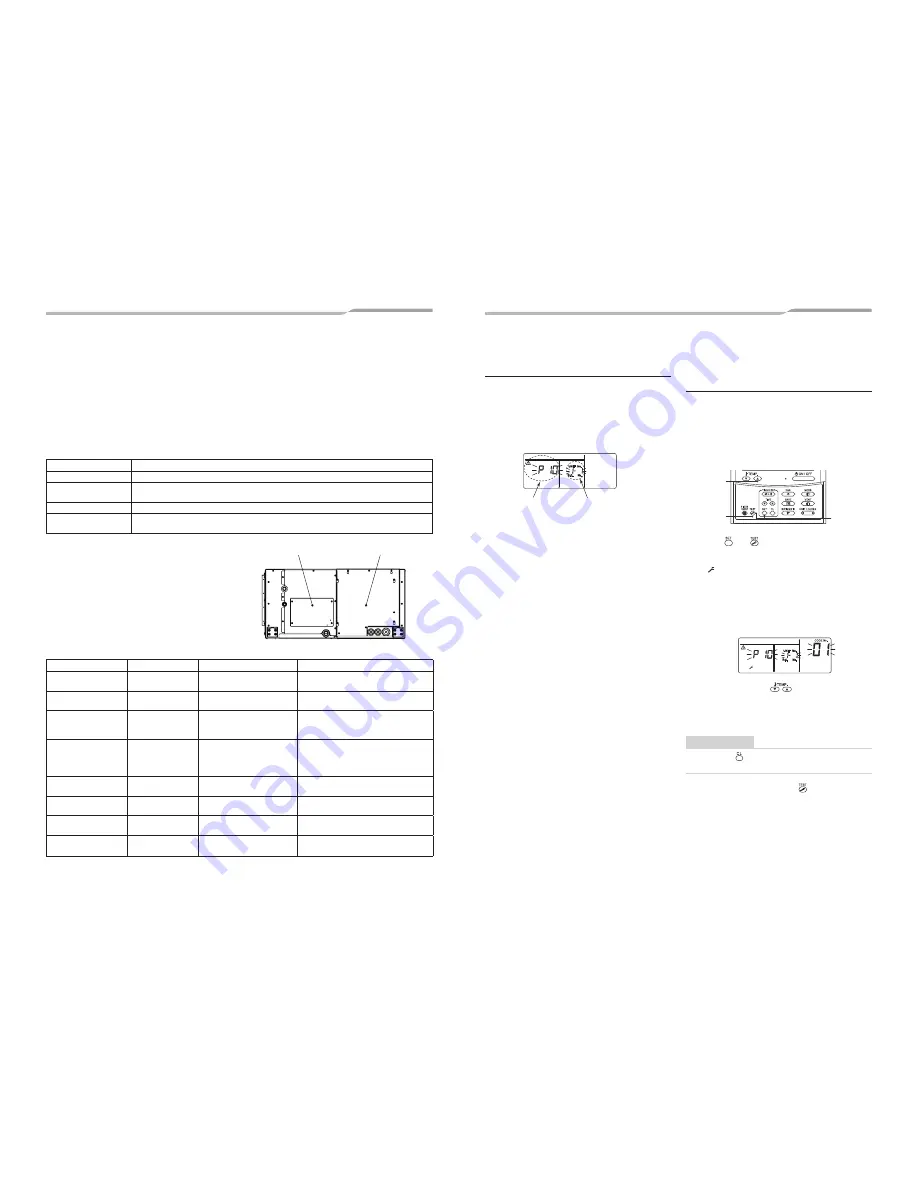
48-EN
47-EN
– 24 –
EN
EN
EN
EN
q
Periodic Maintenance
For environmental conservation, it is strongly recommended that the indoor and outdoor units of the air conditioner
in use be cleaned and maintained regularly to ensure ef
fi
cient operation of the air conditioner.
When the air conditioner is operated for a long time, periodic maintenance (once a year) is recommended.
Furthermore, regularly check the outdoor unit for rust and scratches, and remove them or apply rustproof
treatment, if necessary.
As a general rule, when an indoor unit is operated for 8 hours or more daily, clean the indoor unit and outdoor unit
at least once every 3 months. Ask a professional for this cleaning / maintenance work.
Such maintenance can extend the life of the product though it involves the owner’s expense.
Failure to clean the indoor and outdoor units regularly will result in poor performance, freezing, water leakage, and
even compressor failure.
Inspection before maintenance (Once a year)
Following inspection must be carried out by a quali
fi
ed installer or quali
fi
ed service person.
Parts
Inspection method
Fan motor
Access from the access panel and check if any abnormal noise can be heard.
Fan
Access from the access panel and remove the access panel. Examine the fan if there are any
waggles, damages or adhesive dust.
Filter (sold separately)
Access from check port and check if there are any stains or breaks on the
fi
lter.
Drain pan
Access from the access panel and remove the access panel. Check if there is any clogging or
drain water is polluted.
y
The unit can be accessed from the access panel shown
in the
fi
gure.
Access panel
Electrical control box
q
Maintenance List
Part
Unit
Check (visual / auditory)
Maintenance
Heat exchanger
Indoor / outdoor
Dust / dirt clogging, scratches
Wash the heat exchanger when it is
clogged.
Fan motor
Indoor / outdoor
Sound
Take appropriate measures when
abnormal sound is generated.
Filter
Indoor
Dust / dirt, breakage
y
Wash the
fi
lter with water when it is
contaminated.
y
Replace it when it is damaged.
Fan
Indoor
y
Vibration, balance
y
Dust / dirt, appearance
y
Replace the fan when vibration or
balance is terrible.
y
Brush or wash the fan when it is
contaminated.
Air intake / discharge
grilles
Indoor / outdoor
Dust / dirt, scratches
Fix or replace them when they are
deformed or damaged.
Drain pan
Indoor
Dust / dirt clogging, drain
contamination
Clean the drain pan and check the
downward slope for smooth drainage.
Ornamental panel,
louvers
Indoor
Dust / dirt, scratches
Wash them when they are contaminated
or apply repair coating.
Exterior
Outdoor
y
Rust, peeling of insulator
y
Peeling / lift of coat
Apply repair coating.
12
Troubleshooting
Con
fi
rmation and check
When a problem occurred in the air conditioner, check
code and indoor UNIT No. appear on the display part
of the remote controller.
The check code is only displayed during the operation.
If the display disappears, operate the air conditioner
according to the following “Con
fi
rmation of check code
log” for con
fi
rmation.
check code
Indoor UNIT No. in which
a problem occurred
Con
fi
rmation of check code
log
When a problem occurred on the air conditioner, the
check code log can be con
fi
rmed with the following
procedure.
(The check code log is stored in memory up to 4 check
code.)
The log can be con
fi
rmed from both operating status
and stop status.
3
2
1
1
When and buttons are pushed
simultaneously for 4 seconds or more, the
following display appears.
If is displayed, the mode enters in the check
code log mode.
y
[
01:
Order of check code log] is displayed in
CODE No.
y
[Check code] is displayed in CHECK.
y
[Indoor unit address in which a problem
occurred] is displayed in Unit No..
2
Every pushing of
button used to set
temperature, the check code log stored in
memory is displayed in order.
The numbers in CODE No. indicate CODE No.
[
01
] (latest)
→
[
04
] (oldest).
REQUIREMENT
Do not push button because all the check code
log of the indoor unit will be deleted.
3
After con
fi
rmation, push
button to return
to the usual display.

